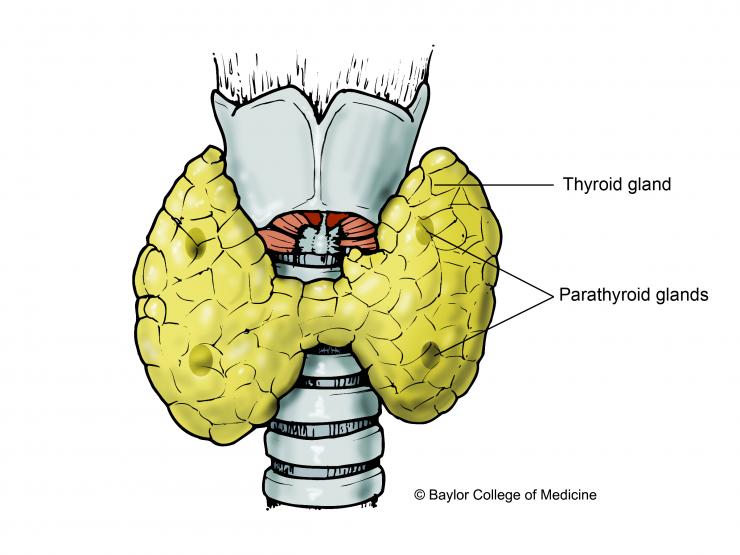Parathyroid disease occurs when the parathyroid glands produce too much hormone, which reduces gland’s capacity to control calcium levels. Unbalanced blood calcium levels can cause serious health problems.
The parathyroid glands are four small glands located behind the thyroid gland. These glands regulate the amount of calcium throughout the body.
Primary Hyperparathyroidism
Primary hyperparathyroidism occurs when one or more of the parathyroid glands overproduce the parathyroid hormone (PTH), which causes calcium to be pulled from the bones and intestinal track and emitted into the bloodstream. Primary hyperparathyroidism causes high blood calcium levels and potential osteoporosis secondary to low bone calcium. Kidney function can also be impaired from clearing the calcium, which can lead to kidney stones. The only cure primary hyperparathyroidism is surgery to remove the abnormal parathyroid gland(s).
Renal (Secondary and Tertiary) Hyperparathyroidism
Secondary hyperparathyroidism occurs when the parathyroid gland becomes overactive secondary to another condition in the body. Most commonly, it happens when the body is unable to clear phosphorous due to kidney failure or dialysis. The buildup of phosphorous causes the parathyroid to grow. Vitamin D deficiency can also cause the parathyroid to overproduce. Initially, hyperparathyroidism is treated with medications, with surgery reserved for cases where medications stop working. Secondary hyperparathyroidism resolves in about 50% of cases after kidney failure is remedied through a transplant. Tertiary hyperparathyroidism occurs when the hyperparathyroidism does not go away after the kidney transplant, and surgery may be needed.
Persistent and Recurrent Hyperparathyroidism
Persistent hyperthyroidism means the calcium and PTH levels never become consistently normal following surgery, while recurrent disease means that the levels were normal for at least six months and then became abnormally high again. Re-operative or re-do parathyroid surgery can be successful. Studies have shown that success depends heavily on having an experienced parathyroid surgeon.








 Credit
Credit
